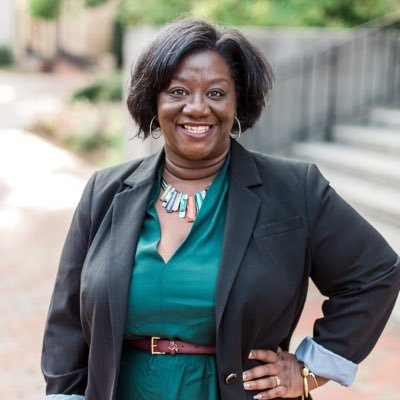Who gets to live the American Dream?
By Isabel Sorrells ’23
“Wonderful lectures don’t end conversations,” says Prof. Mary Armstrong. “They start them.”
It’s with this in mind that the head of the Women’s, Gender, and Sexuality Studies Program looked for the ideal speaker to deliver the John L. Hatfield ’67 Lecture, which will take place online on March 23 at 7 p.m. (register).
“The Hatfield Lecture celebrates great writers and the critical role of the library in making new ideas available to us,” Mary says. “Great writers don’t just teach us something. They challenge us to ask questions—about the world and about ourselves.”
 That challenge will come from acclaimed sociologist Tressie McMillan Cottom, author of the book THICK: and Other Essays, which examines the experience of Black women in academia as well as her own struggles with body image and racism. It was featured on both NPR and the Chicago Tribune’s lists of Best Books of 2019.
That challenge will come from acclaimed sociologist Tressie McMillan Cottom, author of the book THICK: and Other Essays, which examines the experience of Black women in academia as well as her own struggles with body image and racism. It was featured on both NPR and the Chicago Tribune’s lists of Best Books of 2019.
Cottom’s writing also has been published in newspapers such as The Washington Post and The New York Times. Awards include the New York Times Editor’s Choice in 2019, a MacArthur Genius Grant, and TIME magazine’s Must Read Book of 2019.
Cottom is an associate professor at the School of Information and Library Science at University of North Carolina at Chapel Hill. She co-hosts the podcast Hear to Slay: The Black Feminist Podcast of Your Dreams with Roxanne Gay.
Armstrong and Anne Houston, dean of libraries and coordinator of the annual lecture, agreed that Cottom is an ideal choice for the year marking the 50th anniversary of coeducation at Lafayette.
“Her voice is not only brilliant, it is also a very public voice,” Mary says. “She’s a Black, feminist, public intellectual who asks her readers to consider their own civic choices and responsibilities.”
Cottom’s critical thinking and poignant writing focus on major social issues in the United States, including the intersections of socioeconomic class, gender, education, race, and the workforce and how these influence our daily lives.
Cottom places an important focus on “who goes to College, who does and does not get to live ‘the American dream,’ what it means to be educated, and what it means to be an actor in a complex, troubled, systemically racist world,” Mary says.
In addition, she notes, Cottom writes from a unique perspective that “analyzes society as an academic but also demands that we think about our own role in social change. A liberal arts education insists on critical thinking, but it also asks that every person think seriously about their role in shaping the world.”
The goal is for the lecture to challenge the campus community to think critically and look at itself from a different perspective.
“Our hope is that students, faculty, and staff will not just learn from Cottom, but that they come away asking new questions about racial injustice, misogyny, what it means to be educated, and what their role is in transforming these issues,” Mary says.